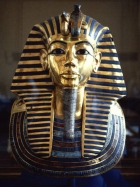Britain & Ireland
What was it about industrialisation that led to the emergence of a woman’s movement in Victorian Britain? Why do we see so many people fighting for so many rights and liberties in this period and what are the origins of some of the issues we still campaign on today? This section includes our major series on Social and Political Change in the UK from 1800 to the present day. There are also articles and podcasts on the often violent relationship between England and Ireland during this period and England’s changing relationship with Scotland and Wales. Read more
Sort by:
Date (Newest first) | Title A-Z
Show:
All |
Articles |
Podcasts |
Multipage Articles
-

Queen Victoria as a Politician
ArticleClick to view -

Tony Blair, the Iraq War, and a sense of history
ArticleClick to view -

British Christians and European Integration
ArticleClick to view -

The ideological contribution of 'The Times' in favour of motherhood in Great Britain between 1910–1920
ArticleClick to view -

Chamberlain Day and the popular meaning of Tariff Reform
ArticleClick to view -

Oscar Wilde: the myth of martydom
ArticleClick to view -

The Irish historians' role and the place of history in Irish national life
ArticleClick to view -

Lord Palmerston
ArticleClick to view -

The Uses of History in the Twenty First Century
ArticleClick to view -

The Urban Working Classes in England 1880-1914
ArticleClick to view -

Bertrand Russell's Role in the Cuban Missile Crisis
ArticleClick to view -

Joseph Priestley's American Dream
ArticleClick to view -

Two Babies That Could Have Changed World History
ArticleClick to view -

The Origins of the Local Government Service
ArticleClick to view -

'Spy Fever' in Britain, 1900 to 1914
ArticleClick to view -

Why did the Dome fail?
ArticleClick to view -

Heritage and History
ArticleClick to view -

A Social History of the Welsh Language
ArticleClick to view -

The Gallipoli Memorial, Eltham
ArticleClick to view -

The Rainbow Circle and the New Liberalism
ArticleClick to view

